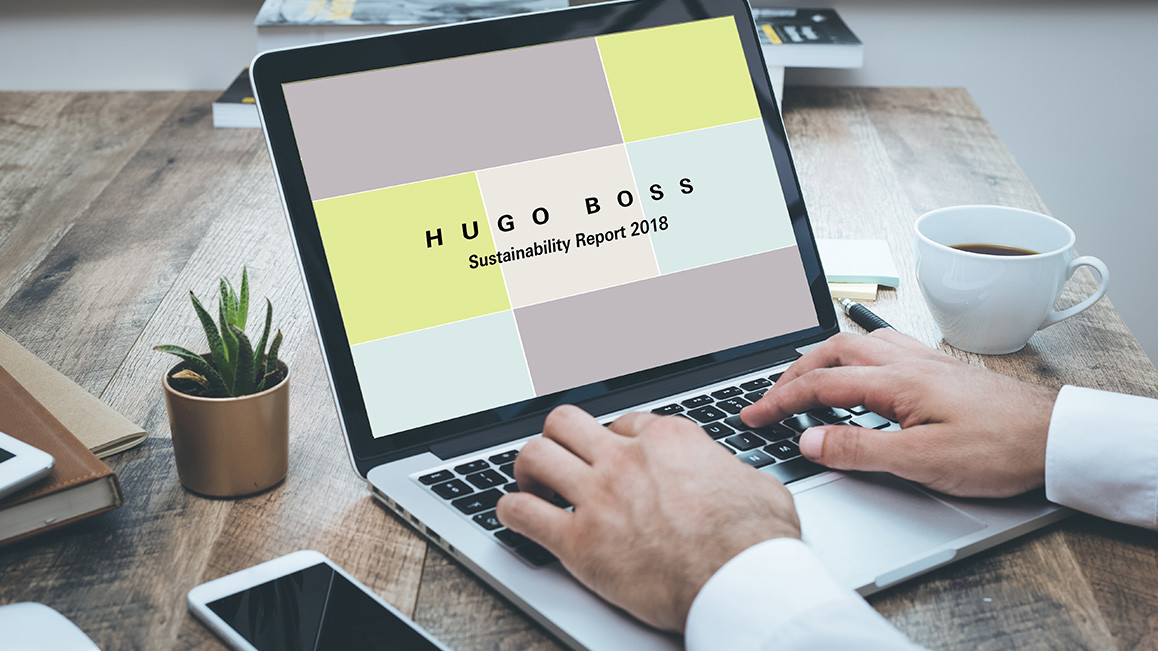April 2019 - HUGO BOSS has published its sixth Sustainability Report. For the first time its reporting covered the sustainability performance for the entire Group.
In the reporting year, the focus was on expanding our activities for more sustainability within the supply chains and in our products. Among other initiatives, we have comprehensively trained our finished goods suppliers on social standards and are gradually working with them to achieve greater transparency in the supply chain. Signing the UN "Fashion Industry Charter for Climate Action" last year was another milestone for us. With this signature, we commit ourselves - along with the other signing companies - to promote climate protection measures in the supply chain. We were also able to further increase the use of more sustainable materials in the year under review. For example, 40% of the cotton used for our products in 2018 came from more sustainable sources. Among these products is our first "Responsible" capsule collection with the focus on cotton, which was launched in March of this year. Going forward, we will continue to expand the use of sustainable materials in our products. By 2025, at least 90% of the cotton we use should come from more sustainable sources.
In order to drive sustainable improvements in the supply chain, we have further expanded existing cooperation agreements with various partners. For example, within the Partnership for Sustainable Textiles we are supporting their initiative to ensure compliance with social standards in spinning mills in the southern Indian region of Tamil Nadu. The aim is to improve the work situation of local people and strengthen their position. We are also active in working groups in the "Zero Discharge of Hazardous Chemicals Programme", with the aim of avoiding the use of harmful chemicals in the production process.
Further information on our commitment can be found in the current Sustainability Report.
This year we integrated the non-financial statement into the Annual Report for the first time, it is therefore no longer part of the sustainability report.
